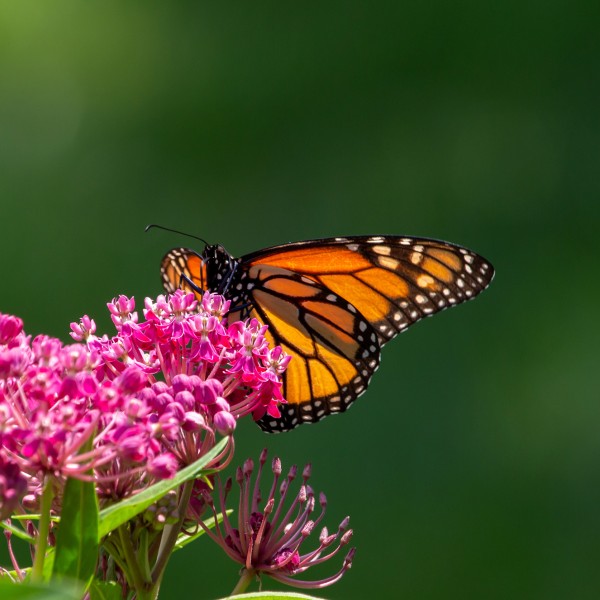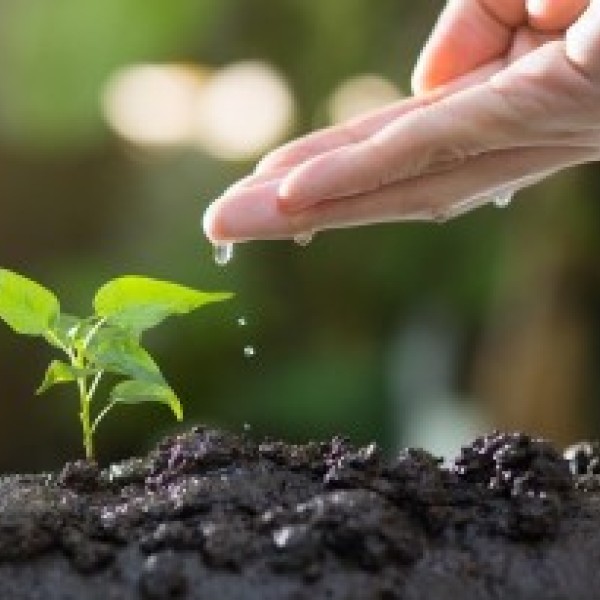William Boyle ’55, MBA ’56, has given a significant gift to the College of Agriculture and Life Sciences (CALS) to support renovations to the Plant Science Building – the largest gift so far to the current college campaign.
“Cornell has been a keystone in whatever success I’ve enjoyed in life,” Boyle said. “At this point in time, with global warming, mass migration and hunger concerns in the news and in our daily conscious, I feel it’s important to support the efforts of the people who are working to address these problems.”
“Plants and soils are central to the many global challenges facing people and the planet,” said Benjamin Z. Houlton, the Ronald P. Lynch Dean of CALS. “Our plant scientists continue to pioneer scientific breakthroughs, from genes to biomolecules, whole ecosystems and the Earth. This work leads to new economic opportunities for New York state – and worldwide – through the creation of new plant varietals, small businesses, public-private partnerships and extension-based programming central to Cornell’s Land Grant mission. This generous gift from Bill Boyle will secure for the next century our legacy of excellence in plant science at CALS, as we continue to tackle bigger and bolder challenges together.”
The Plant Science Building was constructed in the 1930s and is undergoing a multiphase renovation intended to support high-performance research and facilitate interdisciplinary, team-based collaborations with flexible labs and interactive common spaces. The $69 million phase one renovation is anticipated to complete by the end of 2025, with phase two to follow in 2026. The building primarily supports the School of Integrative Plant Science (SIPS), the largest unit in CALS with 85 faculty members, almost 200 undergraduate students and more than 200 graduate students.
Houlton said renovations to the 90-year-old Plant Science Building will add critical updates for safety, student success and new research opportunities while preserving many architectural elements. This preservation work especially appealed to Boyle, who with his late-wife, Patricia, supported extensive, yearslong efforts to renovate historic buildings in their hometown of Medina, Ohio. Together they also renovated and preserved several 1800s-era barns and other structures on their properties.
“That’s why Dean Houlton’s proposal to support renovations of the Plant Science Building almost seemed meant to be: It falls on the heels of all these years of restoration that my wife and I have engaged in,” Boyle said. “I appreciate that it’s an investment in brick and mortar that will support faculty and student efforts for decades into the future.”
“SIPS is a world leader in the plant sciences, and the faculty, staff and students should have world-class facilities,” said Jocelyn Rose, director of SIPS. “The renovated building will provide state-of-the-art research and teaching environments in which we will expand and share our knowledge of plants, soils and plant-associated microbes.”
In honor of Boyle and his late wife, CALS will name a portion of the building as the William and Patricia Boyle Research Wing. The breezeway tunnel walkway between the Plant Science Building and Mann Library and the plaza outside of Kennedy Hall on the Ag Quad will also be named in honor of the gift.
Boyle earned his undergraduate degree in agricultural economics and his Master of Business Administration in an expanded five-year program for high-achieving students. During his time at Cornell, Boyle became president of Phi Kappa Sigma fraternity and graduated from the ROTC. He served in the U.S. Army from 1956-1958, was stationed in Orleans, France, working in planning and logistics, and earned the rank of first lieutenant. Boyle went on to work for the Pillsbury Co., the Flint Ink Corp. and, most extensively, the J.M. Smucker Co.
Throughout his 30-year career with Smucker’s, Boyle served as senior vice president and director of marketing, president international and as a member of the company’s board of directors. Boyle’s personal connection to agriculture and conservation underscore his support for CALS, he said. He owns a 150-acre farm in Ohio, managed by his daughter, where regenerative agriculture practices like no-till farming are used to grow corn, soybeans and wheat. He also served on the board of the largest watershed conservancy district in Ohio.
Boyle said he plans to return to campus in June for his 70th reunion.





